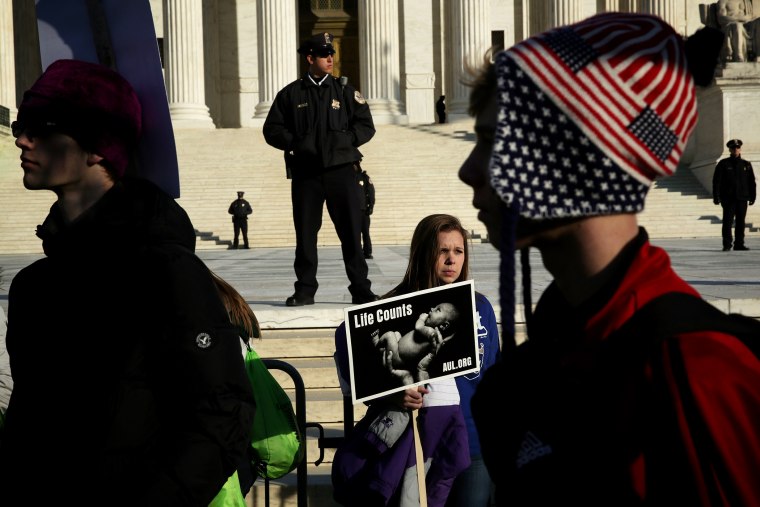The state of Mississippi on Wednesday asked the U.S. Supreme Court to rule on a law that would shut down the last abortion clinic in the state by imposing regulatory hurdles that the clinic, Jackson Women's Health Organization, cannot meet.
Should the Court decide to take the case, much more than Mississippi law is at stake. The 2012 law in question, requiring abortion providers to have admitting privileges at local hospitals, has been copied across the country, including in Wisconsin, Alabama, Louisiana, Oklahoma and Texas, and federal courts are still weighing its constitutionality.
RELATED: The Republicans' abortion victory
Leading medical groups say the admitting privileges requirement is medically unnecessary, and because many hospitals in conservative areas resistant any association with abortion providers, many doctors have been unable to comply.
In Texas, a federal appeals court allowed such a law to go into effect in 2014, shutting down about a dozen clinics in the state. But a different panel from the same court, the Fifth Circuit Court of Appeals, told Mississippi its law was unconstitutional, because it would leave the state with no clinics at all. Despite Mississippi claiming that women could just go out of state for an abortion, the panel in the Mississippi case cited a Jim Crow-era decision saying that states can't delegate constitutional rights to their neighbors.
Mississippi argues that the apparent inconsistency in Fifth Circuit decisions on the issue is one reason for the Supreme Court to consider its case. "This implies that either Texas has greater authority to protect maternal health or that Texas women are somehow entitled to greater protection than Mississippi women," the state's attorneys wrote in their brief.
Since the Fifth Circuit kept the last clinic in Mississippi open, abortion rights advocates would just as soon not see the Supreme Court undo that decision. “There is no reason for the U.S. Supreme Court to step into this case," said Nancy Northup, president of the Center for Reproductive Rights, which represents Jackson Women's Health Organization. She added, "The court should decline to review the sound determination that Mississippi women would be irreparably harmed if the state were allowed to close its last clinic.”
Mississippi says the law is a "medically legitimate health and safety regulation," and was enacted because the state was "concerned by highly publicized reports of deaths and injuries involving abortion facilities across the country that raised serious doubts as to the safety of women undergoing abortion procedures." Numerous studies show abortion is an extremely safe procedure; women are about 14 times likelier to die from childbirth.
The state also claims that "a significant number of Mississippi women would be unaffected by the closure of JWHO because there are abortion clinics in Tennessee, Louisiana and Alabama located in closer proximity to them than JWHO." Louisiana and Alabama have both passed admitting privileges laws that threaten their abortion clinics with closure and are tied up in litigation.
Last year, the Supreme Court declined to take an appeal from Wisconsin on an admitting privileges law, which the Seventh Circuit said was likely unconstitutional. It has not considered a major abortion case since 2007.
